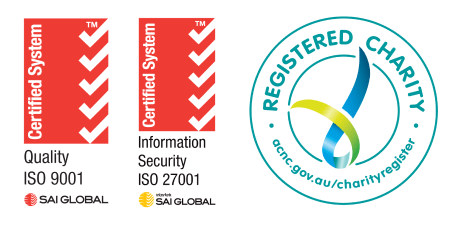Date
Cost
Available to
Practice Managers
General Practitioners
Continuing Professional Development
1.5 RACGP CPD hour - educational activity
The aim of this session is to enhance your skills and confidence in how to strengthen referral pathways and information sharing with the service system to better support victim survivors of domestic and family violence. The workshop will highlight the barriers faced in navigating the service system by victim survivors from culturally and racially marginalised, Aboriginal & Torres Strait Islander and LGBTIQ populations. The workshop will help you identify strategies for effective engagement within primary care settings to strengthen local linkages and optimise access to secondary consultations.
Central to the recommendations of the Victorian Royal Commission into Family Violence is the need for a service system that works for victim survivors. When a victim-survivor seeks help, they should receive it, no matter to which service they choose to disclose. That response should consistently be respectful, sensitive and suitable to the victim survivor’s needs and identities.
Navigating the family violence and related systems remains a challenge for victim-survivors because the range of systems they need or are required to engage with can be complex and confusing.
The challenge faced can relate to the sheer number of services required, the various eligibility criteria they may need to meet, and the layered processes for access. It can also relate to the limited capacity of services, resulting in long waitlists and uncertainty. This confusion can prevent people from receiving services they need when they need them. Understanding how to strengthen partnerships and linkages within your catchment can help to increase trust and confidence in using local services and sharing information.
Speakers:
Clinical Associate Professor Magdalena Simonis AM is a leading women’s health expert, government advisor and a Senior Honorary Research Fellow University of Melbourne Department of General Practice. She has been a member of the National Family Violence steering committee, and helped develop resources with the Safer Families Centre specifically around information sharing and the MARAM. She continues to deliver family violence training through Safer Families and RACGP. Magdalena is a long-standing member of the RACGP Expert Committee Quality Care and is the elected Australian Medical Association Federal General Practice Representative. In 2023 she was made a Member of the Order of Australia, on the King’s birthday for significant service to health through various roles.
Martina Eaton (she/her) is a proud lesbian and mother to one wonderful adult son. She is a community development worker and a passionate advocate for social justice. Martina Eaton has lived experience of family violence in her previous lesbian relationships. She began her journey of advocacy through Speaking Out with Women's Health East and then joined the Victim Survivors Advisory Council (VSAC) for the Victorian Government while also advocating as a "WEAVER" through the Safer Families Centre at Melbourne University. She now also works for Safe and Equal on their Lived Experience Advocacy Program.
Sharyn Jenkins is a proud Wiradjuri woman, living and working on Wiradjuri Country in Albury. She is a social worker, working in family violence for over 20 years. Her work has been primarily with Aboriginal and Torres Strait Islander women, but also in mainstream family violence services. She has also worked in drug and alcohol and homelessness services, and education. She is currently employed as a Specialist Family Violence Advisor in mental health. Sharyn survived 12 years of family violence, including physical assault, sexual assault, and coercive control. She and her three children have all been impacted by family violence over many years and have seen how the systems and services available have let women and children down. This experience drew her to leadership programs looking at systems failures. Sharyn is a member of the WEAVERS group, working on a number of projects. She is co-facilitating the Pathways to Safety training program. She was a member of the Victim Survivor Advisory Council where she has been involved in many projects sharing mu extensive knowledge and experience with services.
Learning outcomes:
- Identify how to engage effectively with the family violence service system in your catchment
- Identify and explain the barriers for victim-survivors and their families when navigating the service system
- Discuss what information sharing is and what GPs need to know to manage risk to a victim-survivor and their children when prioritising their welfare
- Demonstrate the ability to implement appropriate referral pathways to specialised services for victim-survivors of domestic and family violence, including identifying relevant services and applying referral protocols in practice






